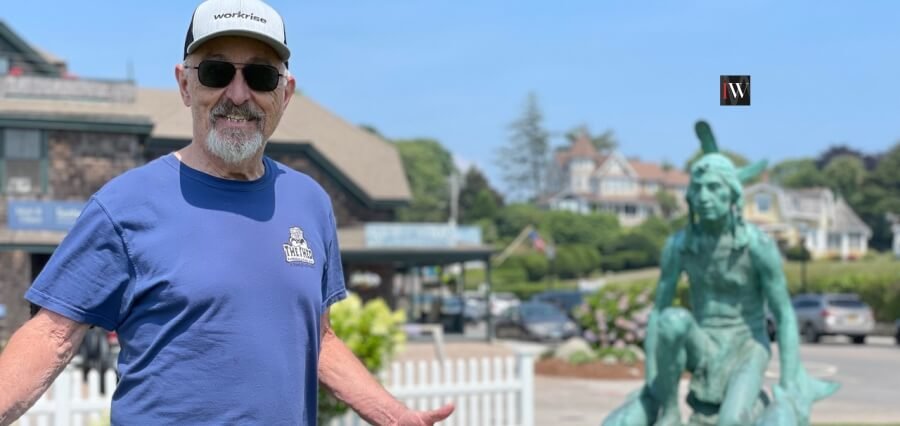In the ever-evolving landscape of education, where innovation, intellectual inquiry, and mentorship intersect, Richard Larson emerges as a pioneer whose influence transcends traditional academic boundaries. His journey is a testament to how one individual can transform the educational experience, not just through research and instruction, but through an unwavering dedication to student growth and institutional development. At the heart of his work lies a belief in making learning accessible, joyful, and practical—principles that continue to guide modern pedagogy across the globe.
From his roots as a young scholar to becoming one of the most influential voices at the Massachusetts Institute of Technology (MIT), Larson’s career spans decades of purposeful engagement with both students and academic institutions. Through various roles across multiple departments, he has championed an inclusive, practical, and model-based approach to teaching. He has constantly sought to equip learners not just with knowledge, but with the tools to think critically and independently. This alignment of scholarly pursuit with the nurturing of human potential defines the core of Larson’s enduring educational philosophy.
Larson’s academic life evolved—from his formative days at MIT to his innovative initiatives like MIT BLOSSOMS, to his role as a mentor, author, and advocate for equity in education. It chronicles his transition from traditional academia to a new vision of post-tenure influence and his continuing contributions to a global audience. Each stage of his journey reveals how a thoughtful and authentic approach to education can create ripples far beyond the classroom.
Journey Through MIT’s Academic Environment
Larson’s association with MIT began decades ago, a period that laid the foundation for what would become a lifelong journey of academic exploration and institutional contribution. Initially joining the institute after completing a PhD focused on mathematical models of urban police departments, Richard Larson had no intentions of becoming a permanent fixture at MIT. However, inspired by the intellectual vibrancy and collaborative environment, he quickly found himself immersed in a community that mirrored his values and passion for teaching.
Starting as an assistant professor, his early days were driven by curiosity and a desire to engage students in meaningful dialogue. He transitioned through faculty positions in five different academic departments, a rare feat that illustrates both his interdisciplinary approach and intellectual versatility. Over the years, he developed a reputation as a dynamic educator who could navigate complex theoretical frameworks while making them accessible to students from diverse backgrounds.
His immersion in the academic world was never static. Instead, it evolved with each department he engaged with, each research collaboration he fostered, and each student he mentored. Richard Larson’s connection with MIT became a mutual relationship—one where he shaped the institution as much as it shaped him.
Nurturing a Joy of Learning
One of Larson’s most defining qualities as an educator is his ability to cultivate an environment where learning is not a burden, but a source of joy. He approaches each new topic with genuine enthusiasm and an open mind, always eager to explore different perspectives. This energy resonates deeply with his students, creating a classroom atmosphere that fosters curiosity and intellectual freedom.
He prioritizes teaching methodologies that emphasize learning how to learn. Rather than promoting rote memorization, he encourages critical thinking, problem-solving, and the development of intellectual independence. This approach not only deepens students’ understanding of content but equips them with skills that transcend academic settings.
Larson views education as a long-term investment in human potential. His most lasting impact, as he often notes, is not in the information imparted, but in the excitement for learning that he instills in his students. That joy, when internalized, becomes a lifelong companion for learners as they navigate careers, research, and personal development.
Shaping Future Scholars Through Research
Larson sees dual channels as most impactful for shaping future scholars—mentorship and scholarly authorship. Serving as a graduate research advisor has allowed him to engage directly in the formation of next-generation academics. He believes this one-on-one relationship is among the most effective ways to influence the future of a discipline, as it allows for continuous dialogue, constructive feedback, and the nurturing of unique intellectual identities.
Equally significant is his contribution to scholarly literature. Through authoring and co-authoring numerous academic papers, Larson has extended his influence well beyond his physical classroom. These works serve as enduring resources, referenced by professionals and researchers around the world.
The symbiosis of personal mentorship and scholarly publication has enabled Larson to shape the academic trajectory of countless individuals. His students often cite his influence in their own teaching styles and research methodologies, creating a multiplier effect that magnifies his legacy.
A Pragmatic Approach to Teaching
While many educators follow prevailing academic trends, Richard Larson’s distinguishes himself through a pragmatic, student-first approach. He grounds his teaching in present realities, focusing on tangible educational outcomes rather than theoretical popularity. This authenticity is what led to one of his most impactful initiatives—MIT BLOSSOMS.
BLOSSOMS, an open-source repository of interactive STEM modules, represents Richard Larson’s commitment to accessible, engaging education. Designed specifically for high school classrooms, these modules make advanced topics digestible through practical demonstrations and interdisciplinary connections. By leveraging the internet and platforms like YouTube, BLOSSOMS has reached students and teachers across the globe, breaking geographical and economic barriers in education.
His ability to simplify complex ideas without diluting their substance is a hallmark of Richard Larson’s approach. Rather than being swayed by temporary educational fads, he remains anchored in student needs and real-world applications.
Championing Social Equity in Education
Beyond MIT, Larson has extended his expertise and energy to serve communities that traditionally face educational disadvantages. His involvement with Notre Dame Cristo Rey High School reflects a deep commitment to social equity. This institution serves socio-economically challenged students, offering a work-study program that covers the majority of tuition and boasts a 100% college acceptance rate.
Larson finds this work deeply fulfilling. He views it as a means of empowering individuals through opportunity—something he believes is central to education’s true purpose. His work at the school mirrors his broader educational philosophy: meet students where they are, provide them with tools and guidance, and trust them to rise beyond expectations.
Integrating Academia and Personal Fulfillment
Richard Larson never saw a conflict between his professional responsibilities and personal life. For him, they are intricately intertwined, forming a seamless narrative of fulfillment and purpose. His closest friends are fellow faculty members and former students, suggesting that academia for Larson is not a job—it’s a way of life.
This integration has helped him maintain a sense of balance and authenticity, allowing him to navigate the often demanding world of academia without losing touch with the human side of education. His relationships with colleagues and students are marked by mutual respect and lasting camaraderie, a testament to the depth of connection he fosters.
This harmony between work and life is perhaps one of Richard Larson’s most subtle but powerful messages: that true success is not measured solely by achievements but by the relationships and communities we build along the way.
Building Lifelong Academic Bonds
Throughout his career, Richard Larson’s has mentored over 30 PhD students, many of whom have gone on to prominent careers in academia and industry. He views their success as an extension of his own, proud of the small part he played in helping shape their journeys.
Many of his former students remain in regular contact with him, often seeking his guidance even years after graduation. These ongoing relationships are more than professional networks—they are genuine, lasting bonds built on mutual growth and respect.
His mentorship goes beyond technical instruction. It involves emotional intelligence, career guidance, and the sharing of life philosophies. These layers of support create a holistic mentoring environment that few educators can offer.
Advocating Authenticity and Passion
To aspiring scholars, Larson offers clear, heartfelt advice: pursue what excites you, and remain true to your intellectual passions. He urges young academics to seek institutions that align with their personal and professional values, avoiding environments where dogma stifles curiosity.
He emphasizes the importance of self-direction, advocating for a career path that is internally driven rather than externally dictated. “You must answer to yourself first,” he often says, reinforcing the idea that authenticity is the bedrock of a fulfilling academic life.
This message, rooted in decades of experience, is both timeless and deeply relevant. As educational environments become increasingly competitive and performance-driven, Richard Larson’s voice serves as a gentle reminder that purpose and passion should never be compromised.
Redefining Academic Roles Post-Tenure
Even in retirement, Larson continues to contribute meaningfully to the academic world. Rejecting the traditional “Emeritus Professor” status, he worked with MIT to create a new faculty title—“Professor, Post-Tenure.” This role acknowledges seasoned academics who still wish to remain active without holding tenure-track responsibilities.
By relinquishing his tenure, Richard Larson’s opened up a position for a younger faculty member, demonstrating his commitment to generational continuity and institutional renewal. His new role allows him to focus on broader educational outreach, writing, and thought leadership.
He hopes that other institutions adopt this model, ensuring that the wisdom of senior academics continues to benefit students and colleagues without hindering organizational growth.
MODEL Thinking for a Broader Audience
Today, Richard Larson’s is passionate about bringing his signature approach—MODEL-Based Thinking—to a broader, global audience. His book, MODEL THINKING For Everyday Life, explores how structured, logical frameworks can be applied not just in academia, but in everyday decision-making.
Through MODEL-Based Thinking, Larson seeks to equip individuals with tools to make more rational, informed choices. This philosophy integrates his years of academic experience with his commitment to practical application, embodying the best of what education can offer.
By extending his ideas beyond the university and into public discourse, Larson reaffirms his role as a thought leader for our time—one who bridges theory and practice with uncommon grace and clarity.
An Educator’s Legacy Beyond the Classroom
Richard Larson’s life and career reflect a rare and valuable blend of intellect, integrity, and inspiration. From transforming MIT classrooms to empowering underserved students, from mentoring future leaders to redefining faculty roles, his influence spans generations and disciplines.
As education continues to adapt to new challenges, Richard Larson’s philosophy offers a powerful blueprint: center the student, pursue authentic inquiry, and teach with both passion and purpose. His story is a reminder that the most enduring impact comes not from titles or accolades, but from the lives touched and the minds ignited.
In Richard Larson’s world, education is not merely a system—it is a living, evolving force for good.
Read More: From Absorbing to Applying: How to Embrace the Learning Revolution Today?




